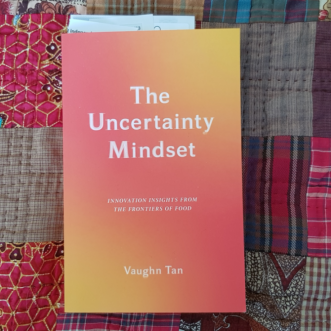
Uncertainty
“Where the future is uncertain, people and organizations have the freedom to influence what it becomes.” Vaughn Tan ‘The Uncertainty Mindset’
Whose idea of the future is your business shaping?

“Where the future is uncertain, people and organizations have the freedom to influence what it becomes.” Vaughn Tan ‘The Uncertainty Mindset’
Whose idea of the future is your business shaping?
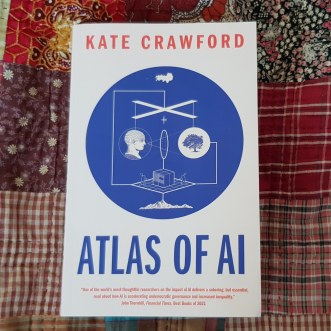
An atlas helps you to see further than your immediate surroundings.
It puts you in context.
Actually, it puts you into multiple contexts, showing you how the small space you currently occupy is connected to others, by geography, geology, ecology and of course politics.
We tend to think of AI as something disembodied and impersonal. In reality, it’s very far from either.
This book puts AI into multiple contexts that get beyond and behind the current hypes.
So you can see further.
‘Atlas of AI’ by Kate Jackson
Well worth a read.
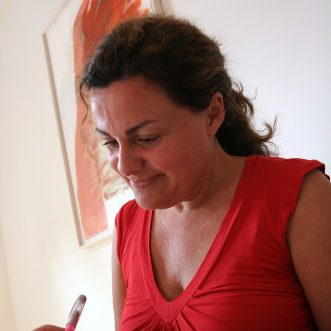
If you’re worried about the economy, and what might happen to your business this year, I’m going to recommend this book again:

The Joy of Tax, by Richard Murphy. My copy, photographed by me.
and this free pdf by the same author:

Downloadable from here.
You can’t take the best actions, if you don’t know how the system really works. Take a moment to feel the water you’re swimming in.
Discipline makes Daring possible
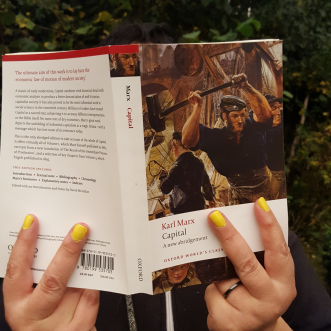
Even if you’re sure you’ll disagree, it’s worth reading Marx’s ‘Capital‘. Especially if you’re a small business owner.
As an explanation of how ‘the system’ works, its far more enlightening than anything I was taught at London Business School.
I’m also pretty sure that most of the people who attend the World Economic Forum at Davos have read it, and use that knowledge to their advantage.
Knowing Marx won’t hurt you, The least that will happen is that you have another lens to see things through.
Discipline makes Daring possible.
PS Even better read in conjunction with Professor David Harvey’s ‘Companion to Marx’s Capital‘, or with his open lecture series at The People’s Forum in New York City.
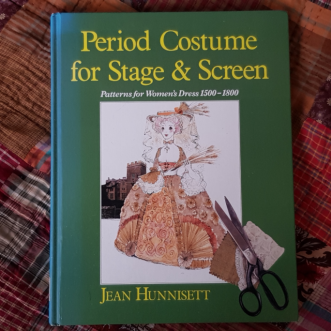
Jean Hunnisett was a costume designer. Someone whose job it is not just to recreate ‘the look’ of a particular period, but to recreate it in a way that is comfortable and practical for the actor to perform in.
People have changed over the centuries, becoming fuller and taller. Clothes have become lighter and less constricting. Women are no longer used to re-configuring their bodies to suit the current trend by wearing corsets from childhood. So a costume designer’s job is never to simply reproduce historical examples, it is to re-interpret, re-measure and re-size those historical examples to produce the desired effect on screen without crippling the actor.
That’s hard work. And Jean Hunnisett did it. Once it was done, she put it out there for the world to share in her costumes and her books. For people like me and Vivienne Westwood to find.
No matter how unique our genius, how brilliant our vision, we achieve nothing alone. We build on the free gifts of human nature left by those who came before and those who work around us now.
That by no means diminishes our achievements.
But it seems only fair to acknowledge the gifts that enable us.

“In six months, 300 volunteers from 41 countries worked asynchronously to produce a best-selling book. The Carbon Almanac is now in ten languages. The almanac for kids, Generation Carbon is in 17 languages. There are more than 88 podcasts, a photobook, and a daily e-newsletter.” From Fast Company: “Lessons from a project with no managers, no boss, and everyone’s a leader.“
And dozens more spin-offs too. The enterprise is still going strong, and still growing.
The Carbon Almanac was created this way.
With no managers, no boss. Everyone’s a leader.
Maybe that’s also how Stonehenge was built? And Çatalhöyük or Knossos?
Maybe that’s naturally how we build worthwhile things?
Maybe you could take the load off your own shoulders and reframe your small business into something longer-lasting that way?
Making everyone a boss unleashes amazing energy. Especially when you also give them a lovely firm but springy floor to bounce off.*
Discipline makes Daring possible.
*That’s where I can help.
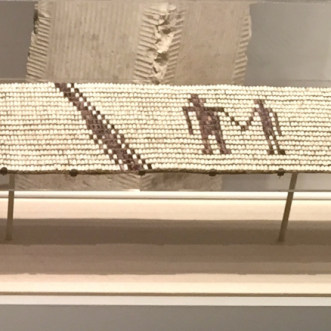
“The ultimate stakes of politics, … is not the struggle to appropriate value; it is the struggle to establish what value is.
Similarly, the ultimate freedom is not to create or accumulate value, but the freedom to decide (collectively or individually) what makes life worth living.
In the end then, politics is about the meaning of life.” David Graeber*
When you start your own business, you get to decide what value is. And as long as you can find enough people who agree with you, you can grow.
That’s how we small businesses change the world, without even realising it.
Imagine what we could do if we did it on purpose!
*from ‘Toward an anthropological theory of value – the false coin of our own dreams.’

I’ve been watching an old documentary series ‘The Mayfair Set’ on BBC iplayer.
It’s uncanny seeing things that happened during your childhood, and realising what was really going on.
They called it ‘creative destruction’ but it was simply asset stripping.
Of course it’s all happened many times before, and it’s happening again. Only now we call it private equity.
One thing’s for sure, capitalism it ain’t.
Just ask Adam Smith.

Economics is not a science. How could it be? It works with and on and around human beings.
It’s an art. That used to be called political economy. Until economists with certain politics decided to change that, to make it sound more scientific.
Nevertheless, economics, unlike physics (whose laws will be true even when we are no longer around to observe them), remains a purely human construct. Something we make up to explain how the world works.
That means it can be wrong. There can be alternatives which explain things better, or produce different results. It all depends on the politics and the assumptions that politics makes about human beings.
So, if you’re interested in alternative economic constructs, here are some books I recommend:
They’re all wrong of course.
But depending on what you’re trying to achieve they may be more helpful.
And at least you can make up your own mind.
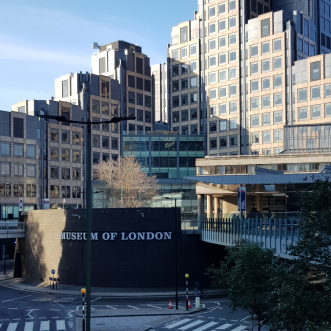
The brilliant Museum of London is closing on the 4th December this year.
It will be moving to West Smithfield, in ‘hopefully, 2026‘.
Not only is this the last chance to see what it holds, but also the last chance to enjoy this lovely building before it gets replaced by more of the stuff that surrounds it.
Get there while you can.
PS Some cracking book bargains to be had in the gift shop.